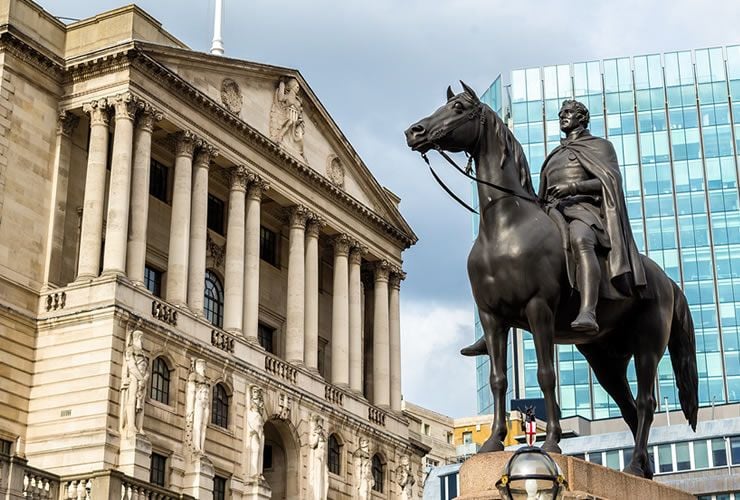"The Bank of England's Job Is Done" say Berenberg
- Written by: James Skinner
-

Brexit risks have not materialised in a meaningful fashion, an economist says, while the Bank of England's post-crisis monetary policy has done all that it can do.
Pound sterling exchange rates could receive a boost over the coming days after August industrial data pointed toward a possible strengthening of the economy in the second half and economists began to call time on the Bank of England’s ultra-loose monetary policy stance.
Markets had given up hope of an early BoE rate hike when July inflation showed price pressures easing in the UK, but incoming data and the more recent sell off in the pound mean the topic is now back on the agenda.
“The short-term risks following the Brexit vote have not manifested in a serious way... In line with the BoE’s recent signal that it intends to tighten its policy over the medium term, we look for a first rate hike in November 2017,” says Kallum Pickering, a senior UK economist at Berenberg, one of Europe’s oldest banks.
August’s manufacturing PMI came in at 56.9, far in excess of the economist consensus for a reading of 55.0, and up sharply from the July reading of 55.1 - marking a three year peak for the index.
The data came ahead of similar surveys of the construction and manufacturing industries, due next week, as well as an inflation-related testimony to a parliamentary committee by Bank of England policy makers.
Forecasts of a 2017 rate hike by the Bank of England are not yet mainstream.
“We have pushed back the timing of the first rate increase from the BoE from November to February 2018 following the Quarterly Inflation Report release....that suggested to us that the BoE will need a little more time before being confident enough to alter policy,” says Derek Halpenny, European head of global markets research at MUFG, in a note Friday.
Neither does the forecast mean the UK economy is without baggage. In fact, Pickering notes keenly the deep structural challenges faced by the UK, particularly around productivity growth. But the bulk of the problems the UK economy is left facing just more than one year on from the Brexit vote are not those that can be addressed by monetary policy.
Bank Bank of England monetary policy since the crisis has achieved all that it can, according to Pickering, with inflation returning steadily toward target, credit flowing readily to businesses and consumers and the economy nearing full employment.
“Monetary policy cannot address the UK’s current ailment, slow productivity growth. As monetary policy cannot raise long-term trend growth, it would be futile to saddle the BoE with the task of fixing the UK’s structural problems,” Pickering wrote.
The pound to euro exchange rate edged lower by 0.14% during the morning session in London Friday, for bids and offers to be accepted around the 1.0846 level, while the pound to US dollar rate fell by a similar degree to be quoted at 1.2920.
This is while the pound to Australian dollar rate edged higher by 0.05%, to 1.6301, and the pound to New Zealand dollar rate gained 0.17% to 1.8056.
“In a world of slower growth, the long-term bank rate required to sustainably achieve the 2% inflation target is lower than before, but nonetheless higher than its current rate of 0.25%,” says Pickering.
Bank of England rate setter Michael Saunders, an interest rate hawk, said Thursday his next interest rate vote will be determined by incoming economic data but that, in his view, a 25 basis point hike is already warranted.
